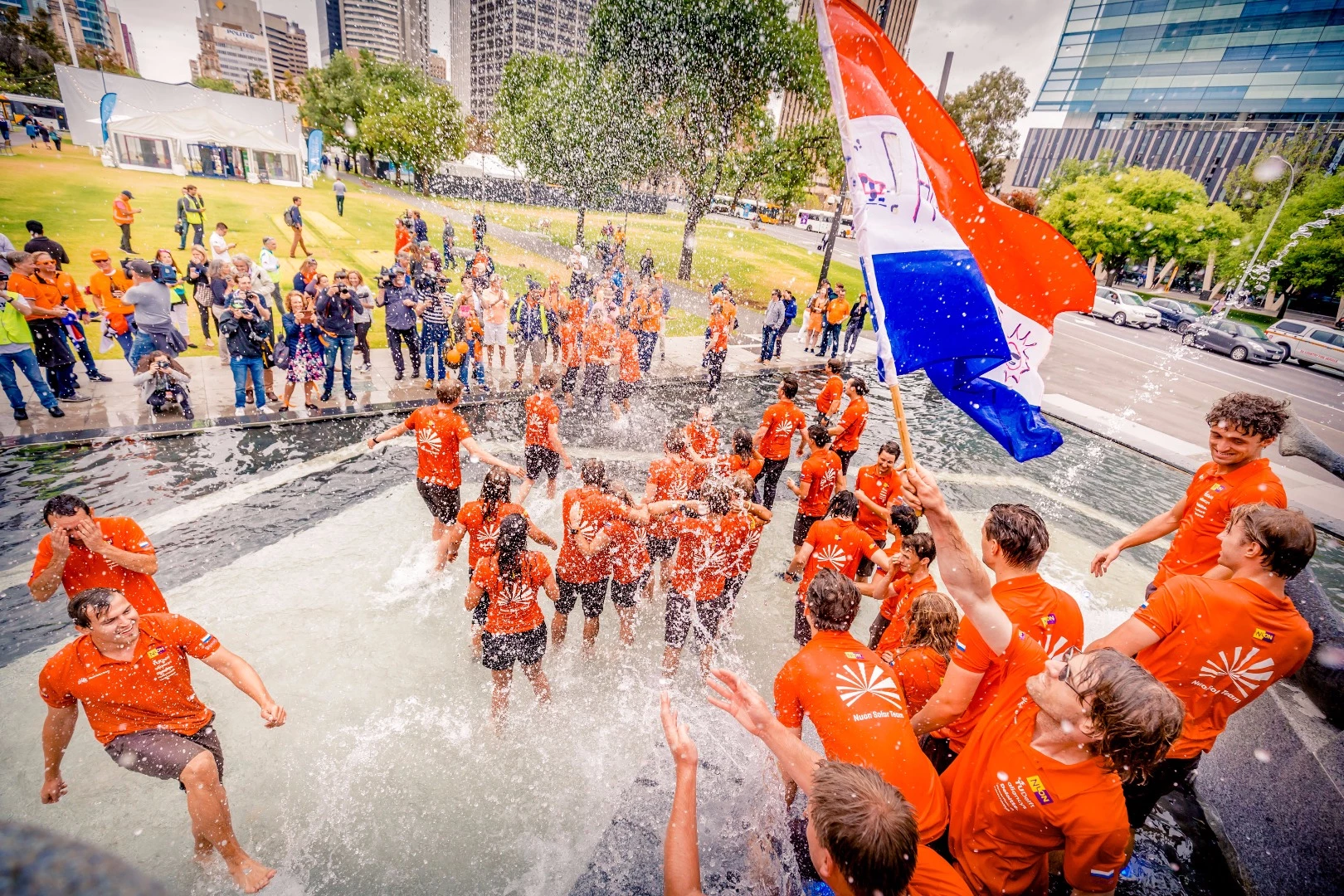Nine times Holland's Nuon Solar Team has competed in the World Solar Challenge, a solar-powered endurance race across Australia, and it has now claimed the title in all but two of those events. This year's result was never really in doubt, with the team's Nuna 9 solar car leading from beginning to end and crossing the finish line on Thursday two hours ahead of its nearest rival.
With 3,000 km (1,864 mi) between it and the finish line, defending champion Nuon set the pace early as it took off from Darwin in this year's World Solar Challenge, opening up an eight minute lead by the end of day one.
This theme would continue throughout the week, with Nuon maintaining its lead on day two, before stretching it out to a massive 56-minute gap on day three and then 59 minutes on day four. It rolled across the finish line in Victoria Square, Adelaide, 1 hour and 59 minutes ahead of the University of Michigan Solar Car Team, and around two and a half hours ahead of Belgium's Punch Powertrain Solar Team in third.

Clouds and rain played a role in this year's World Solar Challenge, as did 60 km/h (37 mph) winds. With solar-power the name of the game, Nuon weathered the storm much better than its rivals, managing its energy consumption, strategy and driving style to cruise to a convincing victory. The team's aerodynamics expert says that the drivers were directed to position the solar car in a way that enabled it to benefit from the winds just like a sailing ship.
Nuon has reigned supreme in the Challenger Class of the World Solar Challenge since first entering the race in 2001, its most recent triumph coming in a relatively tight 2015 race where it finished 10 minutes ahead of its compatriots Solar Team Twente. This Dutch dominance has spilled over into the Cruiser Class, too, which is designed to inspire more commercially practical applications for solar car technology by ranking competitors on things like energy management and payload, rather than a good ol' fashioned first-across-the-line race.
Holland's Team Eindhoven has also led from start to finish in the Cruiser Class and heads into the final day of racing with an efficiency score of 80. Its nearest rival sits on 34.6, a seemingly unassailable lead, save for an extraordinary turn of events. The leaders of the Cruiser Class are expected to cross the finish line in Adelaide around lunchtime on Friday.
Source: World Solar Challenge








































